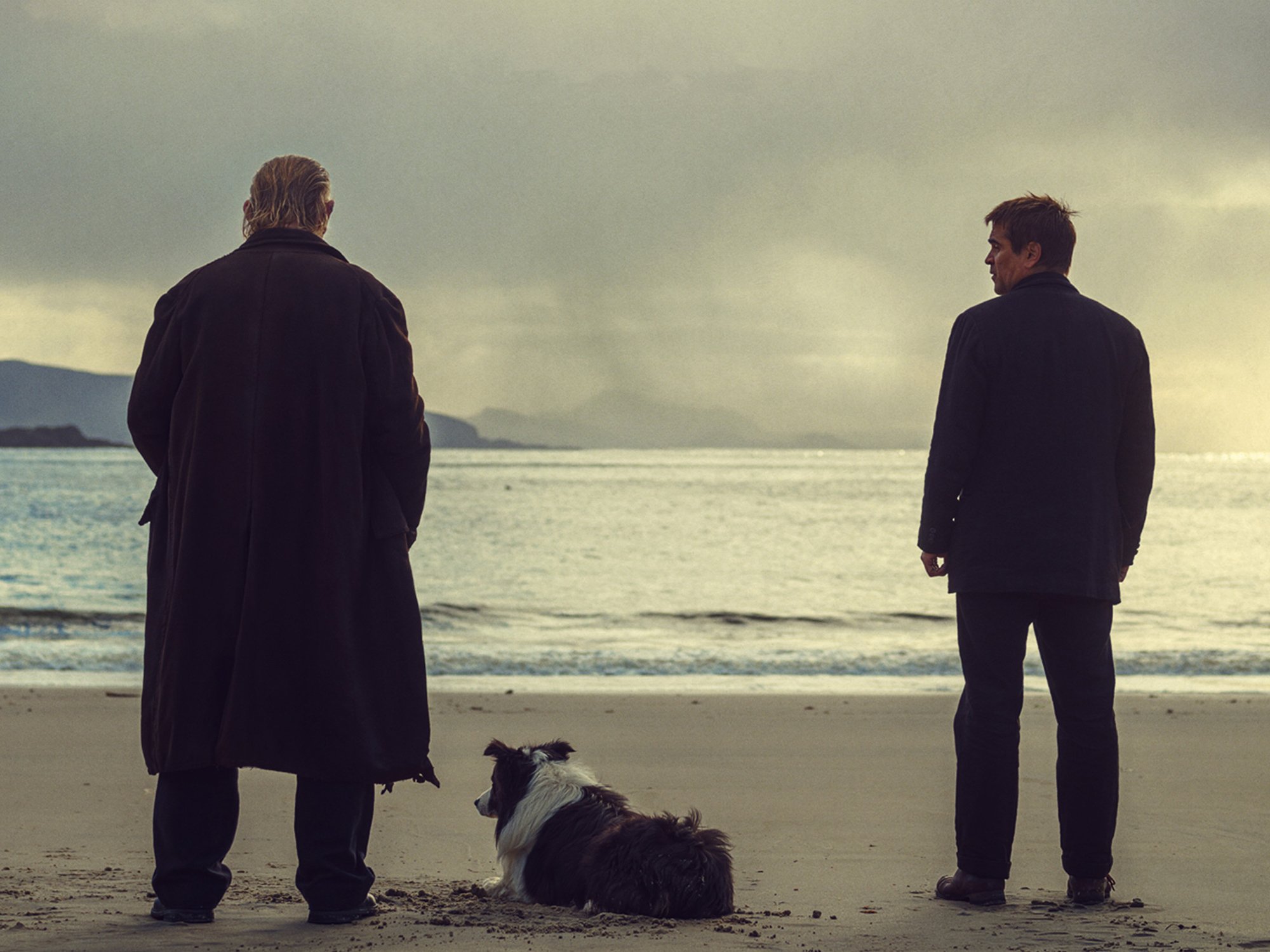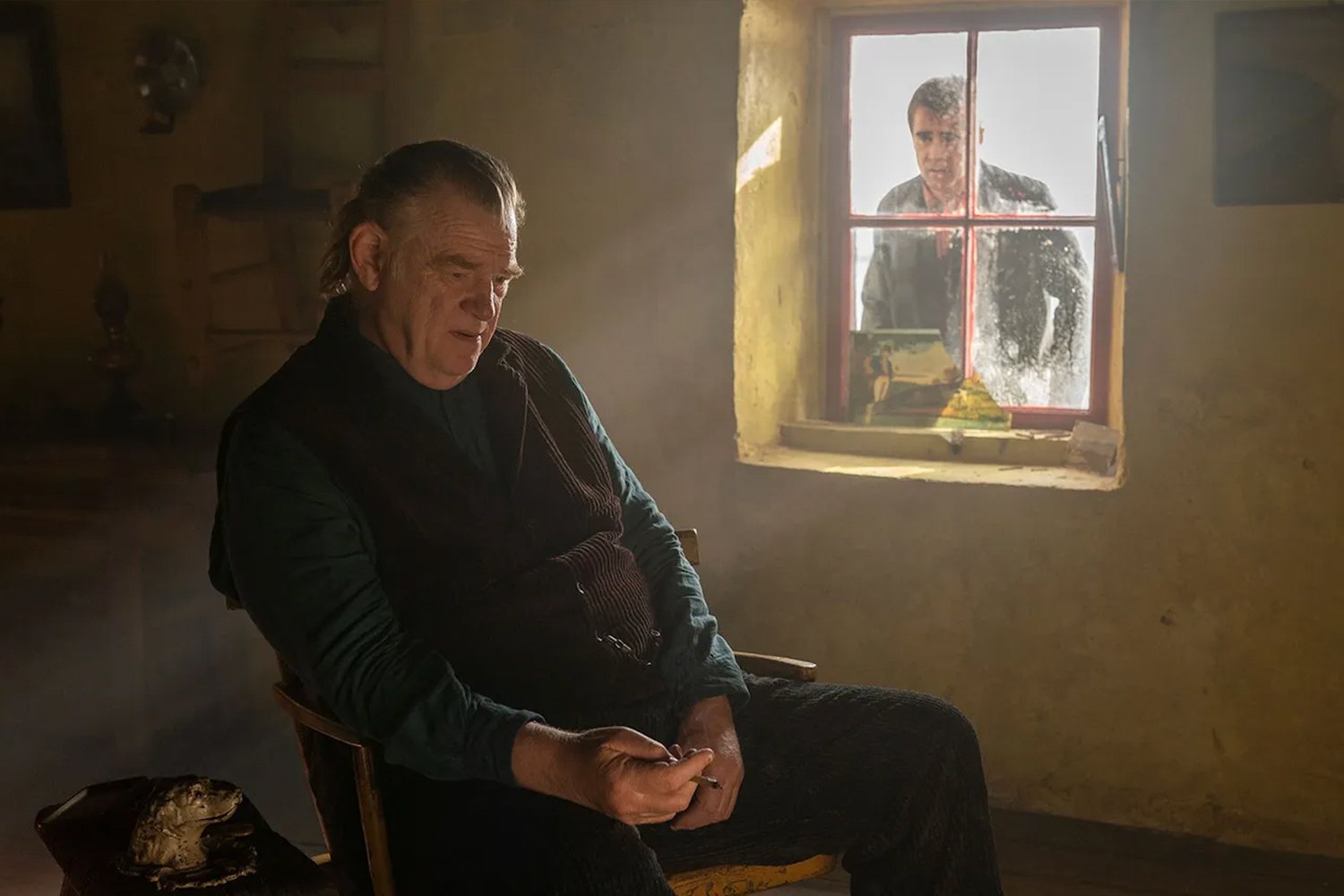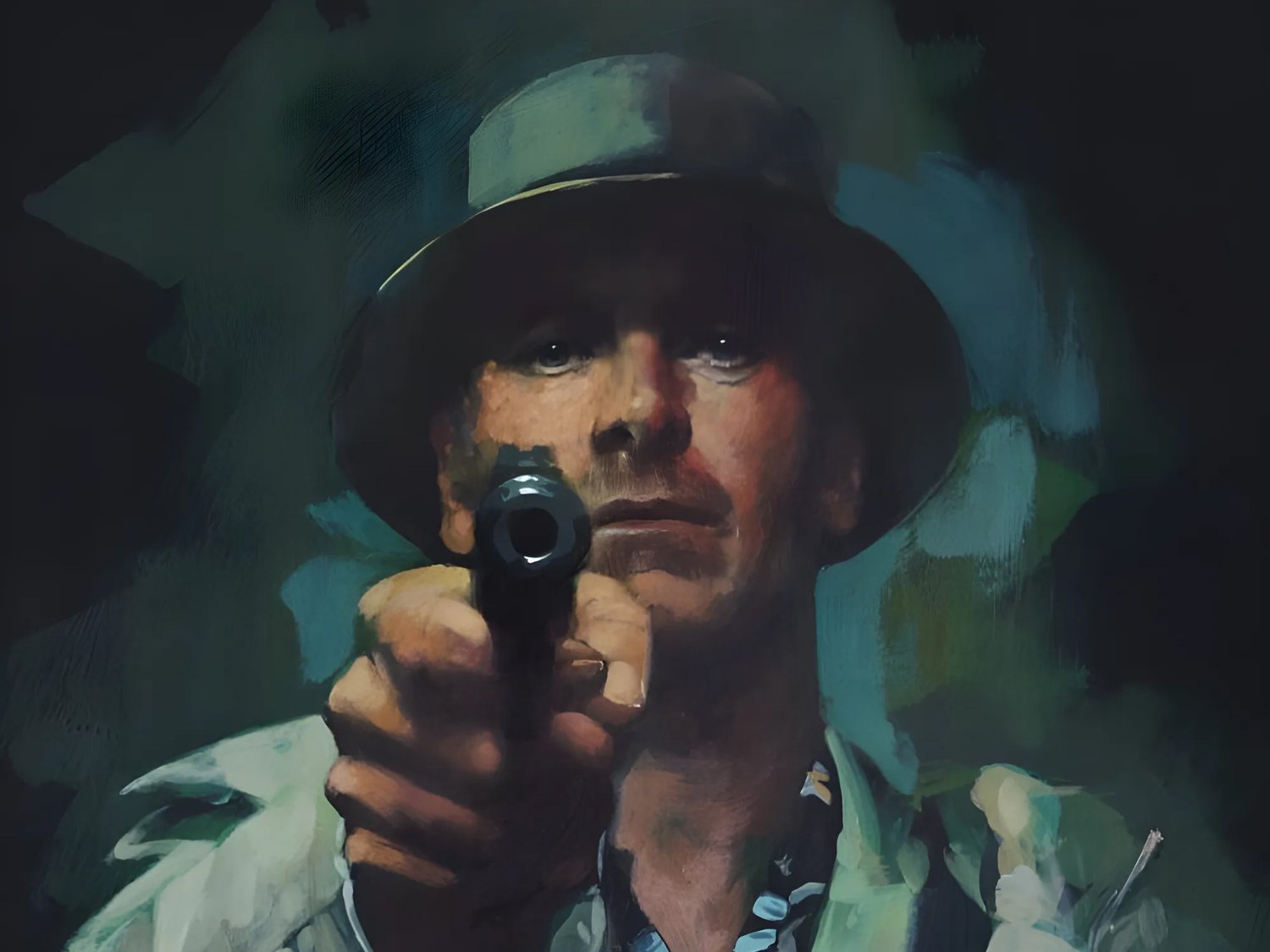TIFF 2022 Film Review: The Banshees of Inisherin
MARTIN MCDONAGH’S DARKLY FUNNY ACCOUNT OF A DISINTEGRATING FRIENDSHIP IS THE BEST FILM OF THE YEAR
Director Martin McDonagh reunites with Colin Farrell and Brendan Gleeson in The Banshees of Inisherin, a darkly comedic portrait of an imploding friendship amidst mounting pettiness. Men and their decimated kinships unraveled upon the screen, richly textured and frequently uproarious, it’s McDonagh at his best as he explores evaporating bonds, crushing loneliness, and enmity in grotesque escalation. Colin Farrell and Brendan Gleeson are unsurprisingly in top form in what will likely be my favorite film of the year. Minor spoilers ahead…
“I just don’t like you no more,” Colm Doherty (Brendan Gleeson) grumbles, without elucidation, as his former drinking buddy Pádraic (Colin Farrell) interrogates their now-evaporated friendship. Martin McDonagh, who floored audiences with his grimly humorous In Bruges, returns with both Colin Farrell and Brendan Gleeson in The Banshees of Inisherin, a devastating reunion just as potent - if not more so - than his 2008 black comedy. Where In Bruges explored the growing bond between two men holed up in a city, building to a gruesome climax, Banshees reverses such polarities, delivering a story about a broken and disintegrated kinship: a once flourishing camaraderie that has turned impasse into terminus.
Taking place during the final days of the Irish Civil War in 1923, with its titular island township a stone’s skip away from the crackling cannons and brother versus brother bloodshed of the mainland, The Banshees of Inisherin revolves around soon-to-be ex-pals Colm and Pádraic. With a daily standing date at two o’clock to share a pint at their long-frequented pub, Pádraic opens the film making a house call at Colm’s seaside abode, only to find that his so-called best friend won’t come to the door, won’t acknowledge his existence, and won’t explain why. The victim of a turn-of-the-century ghosting, or as much as one can be ghosted in an insular village where everyone knows everyone’s business, a bewildered Pádraic is shocked by this seemingly overnight dissipation of his longest, closest friendship. Once again finding the perfect marriage between Farrell and Gleeson, The Banshees of Inisherin pits the former’s sad-sack puppy dog eagerness against the latter’s taciturn gruffness, escalating the quiet death of a fellowship into a bloodied, barbed feud.
“…McDonagh peels back the layers of an underrepresented cinematic subject: the platonic male friendships and all of the unspoken words and the egos…that come with it.”
Painting with the same melodramatic brushes typically reserved for sweeping romances and violent rivalries, McDonagh peels back the layers of an underrepresented cinematic subject: the platonic male friendship and all of the unspoken words and the egos - silent and loud - that come with it. Uniquely attuned as a playwright to this exact type of slow-motion, acid-tongued collision, McDonagh expertly swings our sympathies like a pendulum. It’s easy to understand why Páidrac, a man who prides himself on his mannered geniality, is so aghast over the sudden loss of his best friend, unable to chalk the fissure up to anything other than Colm’s perceived depression. Colm, on the other hand, whose existential grumpiness has resigned that the notes from his fiddle will be his lone legacy after his death, just simply cannot abide by the dullard that is Páidrac anymore, preferring to spend what time he has with his music and his beloved border collie. And it’s not like it’s a secret: Páidrac is Inisherin’s resident sweetheart, but he’s also one to regale his neighbors with a thorough cataloging of his farm animals’ fecal contents. He’s just not that interesting.
There’s an effortless throughline to be drawn between Colm and Páidrac’s enmity and the infighting of the Irish Civil War occurring right across their isle, but McDonagh wisely contains it as what it is: a light metaphor. Instead, Banshees chooses to contrast the picturesque Inisherin - stunningly captured by director of photography Ben Davis in real-life Inishmore - with the encroaching despair of nearly every one of its denizens. With his only real friendship in shambles, cracks start forming under Páidrac’s feet, and he realizes just how small - and ephemeral - his social circle has become. His voice-of-reason sister Siobhan (Kerry Condon, a delightful revelation), who has acted as sharp and patient mediator between the two ex-friends, daydreams of a life beyond the shores of their little island; and Dominic (Barry Keoghan), the charmingly dim village idiot who loves hanging around Páidrac and Siobhan, hides the beatings doled out by his father while acting as Inisherin’s one-man peanut gallery.
“The Banshees of Inisherin, via summary, feels like a bout of seriously dour business, but leave it to McDonagh to interchange tragedy with wry, uproarious comedy.”
“How’s the despair?” the Inisherin priest asks Colm during a confessional. “It’s come back a bit.” The Banshees of Inisherin, via summary, feels like a bout of seriously dour business, but leave it to McDonagh to interchange tragedy with wry, uproarious comedy. As he pulled macabre laughs revolving around the death of a child in In Bruges, McDonagh mines grotesque humor out of an escalating, bloody breakup. When Colm - at wits end - pulls out a pair of rusty barnyard shears as an absurd ultimatum to Páidrac, it’s equal parts funny and wince-inducing. And besides, every cutting remark and every putdown is at least 50 percent funnier when spoke through an Irish brogue, even as the lighthearted “fecks” turn into hard-nosed “fucks.” The one time Páidrac aggressively asserts himself on how he really feels about the entire situation, Colm mumbles under his breath: “I think I might actually want to be friends with him again.”
The Banshees of Inisherin is tragicomedy at its finest, a specific slice of a combusting amity that just so happens to capture a wide swath of the human condition. A masterful mix of bull-headed humor and melodrama that eventually gives away into something profoundly sad and wistful, it’s a film on a precarious tightrope that seemingly only Martin McDonagh can navigate. Through the contradictory power Colin Farrell and Brendan Gleeson’s mismatched performances, The Banshees of Inisherin finds a curious equilibrium between light and dark, outlining the mundanity of despair with just a glimmer of hope.













